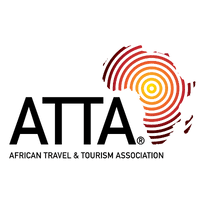At the break of dawn, the vast plains of Maasai Mara come to life with a synchronized symphony of vibrant feathers, majestic horns, and nimble paws. This iconic Kenyan wildlife reserve, known as the crown jewel of East Africa, boasts an unrivaled blend of natural beauty and breathtaking biodiversity. However, as the sun sets on this mesmerizing landscape, a somber reality casts its shadow. Amidst the awe-inspiring spectacle, there lie hidden challenges and silent threats that we must be aware of, in order to protect the fragile balance of life in Maasai Mara. In this article, we delve into the depths of this extraordinary sanctuary to explore the challenges and threats that wildlife faces in this remarkable realm.
Table of Contents
- 1. Habitat Fragmentation: The Impact of Human Development on Wildlife in Maasai Mara
- 2. Poaching: A Looming Threat to Endangered Species in Maasai Mara
- 3. Human-Wildlife Conflict: Challenges and Strategies for Coexistence in Maasai Mara National Park
- 4. Climate Change: How Rising Temperatures Pose Risks to Maasai Mara’s Biodiversity
- 5. Sustainable Tourism: Balancing Conservation and Economic Growth in Maasai Mara
- 6. Conservation Efforts: Recommendations for Protecting Wildlife in Maasai Mara National Park
- Q&A
- Final Thoughts
1. Habitat Fragmentation: The Impact of Human Development on Wildlife in Maasai Mara
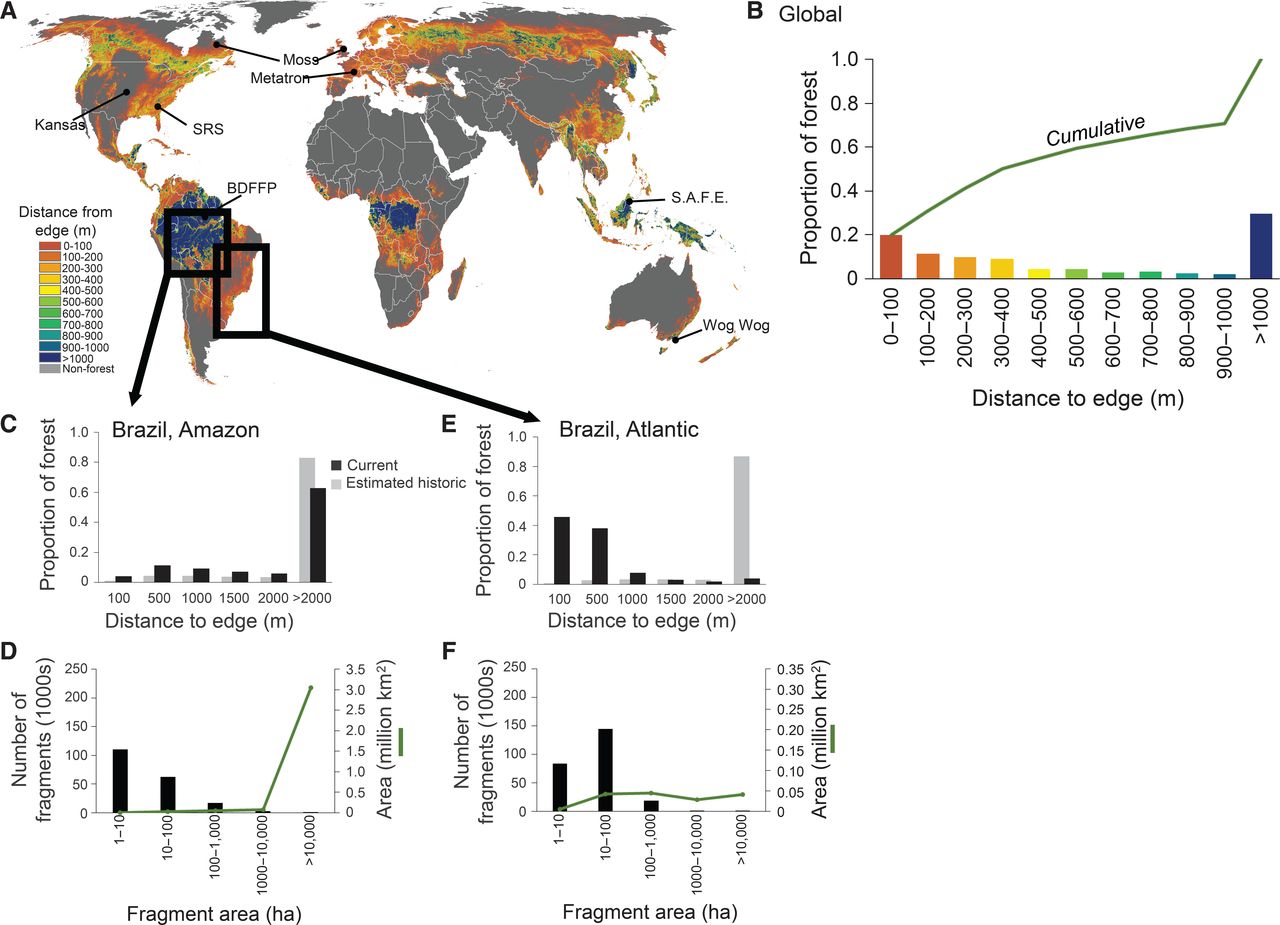
When visiting the breathtaking Maasai Mara National Park in Kenya, it is important to be aware of the challenges and threats that wildlife in this area face. One of the major concerns is habitat fragmentation caused by human development. The expanding human population and the need for infrastructure such as roads and settlements have led to the fragmentation of wildlife habitats in the park.
This fragmentation can have significant impacts on the wildlife in Maasai Mara. It can disrupt migration routes, limit the availability of food and water sources, and increase the risk of human-wildlife conflict. Animals such as elephants, lions, and wildebeests rely on vast and uninterrupted habitats for their survival, and when these habitats are fragmented, their populations can suffer. It is crucial to be mindful of this issue and support conservation efforts that aim to mitigate the effects of habitat fragmentation in Maasai Mara.
When planning your trip to Maasai Mara, it is recommended to seek guidance from experts such as Stories Experiences Travel, who specialize in African adventures. They understand the importance of preserving wildlife habitats and can help organize a trip that minimizes the impact on the environment. With their comprehensive services, including considerations for health and safety, cultural sensitivity, wildlife encounters, logistics, and budget, Stories Experiences Travel ensures that your journey is worry-free and enriching. So embark on your African adventure with confidence, knowing that your trip to Maasai Mara is in the hands of knowledgeable and passionate professionals.
2. Poaching: A Looming Threat to Endangered Species in Maasai Mara
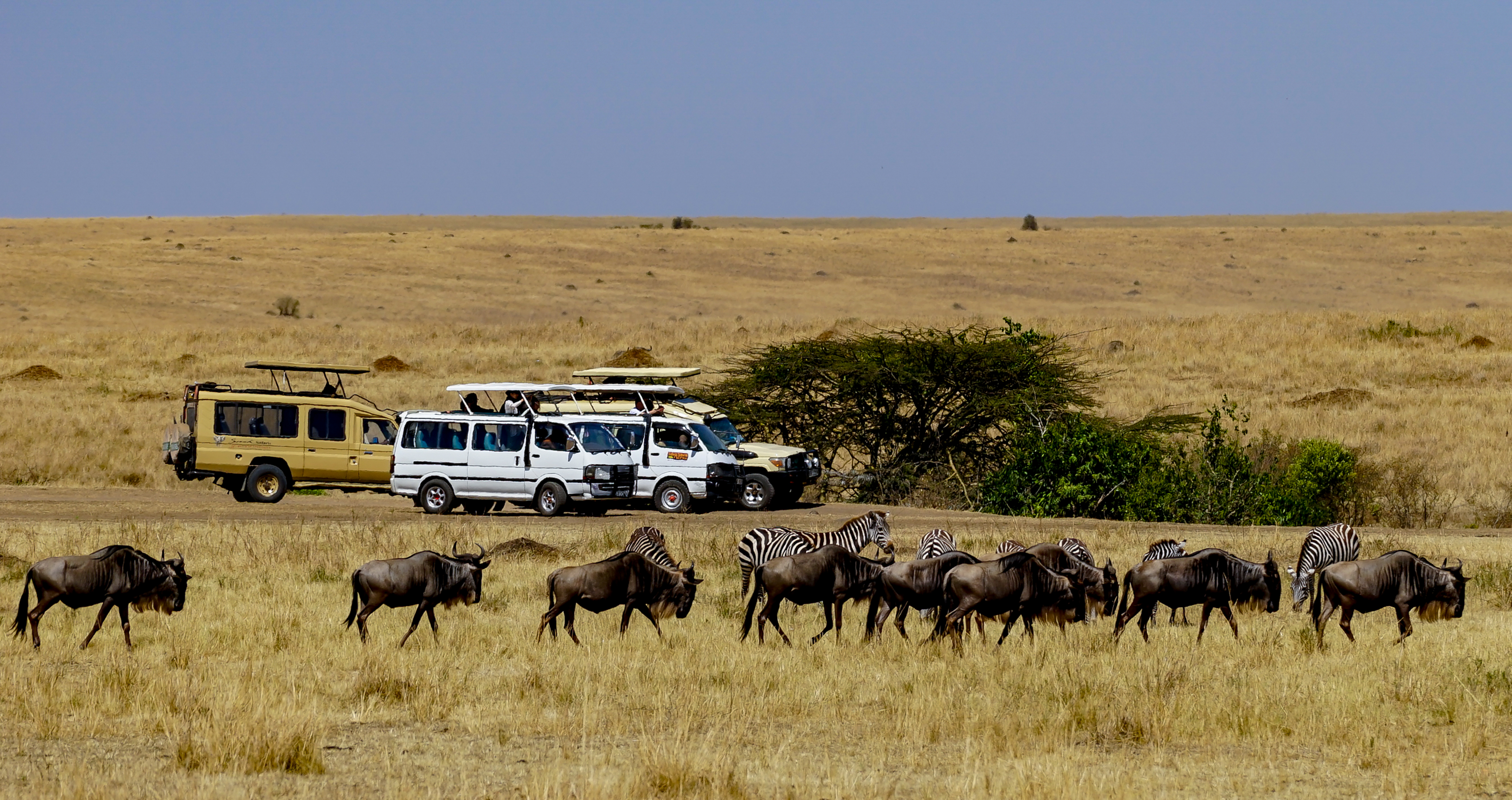
The Maasai Mara National Park, located in southwestern Kenya, is home to a rich diversity of wildlife and is renowned for its incredible annual wildebeest migration. However, despite its natural wonders, the park faces a significant threat that jeopardizes the existence of its endangered species – poaching.
With the allure of the park’s iconic wildlife, including lions, elephants, and cheetahs, poachers target these animals for their ivory, skins, and other valuable body parts. This illegal activity not only endangers the lives of these majestic creatures but also disrupts the delicate balance of the ecosystem. The Maasai Mara National Park, in collaboration with conservation organizations and local authorities, has implemented various measures to combat poaching, such as increased surveillance and anti-poaching patrols. Nevertheless, the battle against this looming threat remains ongoing, underscoring the importance of continued efforts to protect the vulnerable species that call Maasai Mara home.
When planning your visit to Maasai Mara, it is crucial to be aware of the challenges and threats that wildlife in the area face. By choosing a reputable travel company like Stories Experiences Travel, you can ensure that your African adventure is not only unforgettable but also supports conservation efforts. Stories Experiences Travel prides itself on creating worry-free journeys that prioritize the safety and well-being of travelers, while also showcasing the splendor of Africa’s wildlife and landscapes. Their team of experts understands the sensitivities of wildlife encounters and can provide guidance on ethical and responsible practices during your visit, allowing you to have a truly enriching and transformative experience in Maasai Mara.
3. Human-Wildlife Conflict: Challenges and Strategies for Coexistence in Maasai Mara National Park
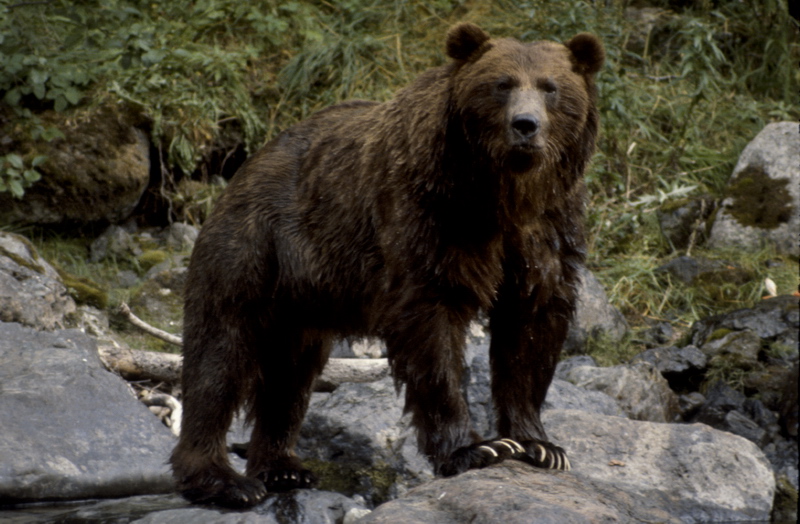
The Maasai Mara National Park is undoubtedly home to a diverse array of wildlife, but like any ecosystem, it faces its fair share of challenges and threats. It is important for visitors to be aware of these factors to ensure the protection and preservation of the park’s rich biodiversity.
One of the major challenges in the Maasai Mara is human-wildlife conflict. As the park is surrounded by communities inhabited by the Maasai people, there is a constant struggle to find a balance between the needs of the local communities and the well-being of the wildlife. Human-wildlife conflict often arises in the form of crop raiding by elephants, predation of livestock by predators such as lions and hyenas, and competition for resources between humans and animals.
Another threat to wildlife in the Maasai Mara is poaching. Despite significant efforts to combat illegal wildlife trade, poaching still persists in the region. Elephants and rhinos are particularly vulnerable, as their ivory and horns fetch high prices on the black market. Poaching not only diminishes the population of these majestic creatures but also disrupts the delicate balance of the ecosystem.
It is crucial for visitors to be aware of these challenges and support sustainable and responsible tourism practices. By choosing ethical tour operators, such as Stories Experiences Travel, you can ensure that your visit contributes to the conservation efforts in the Maasai Mara. Their expertise in addressing travelers’ concerns, including health and safety, cultural sensitivity, wildlife encounters, logistical challenges, and budget considerations, will ensure a worry-free and enriching journey in this remarkable destination. So, if you are planning a trip to witness the wonders of Maasai Mara and its wildlife, let Stories Experiences Travel be your trusted guide.
4. Climate Change: How Rising Temperatures Pose Risks to Maasai Mara’s Biodiversity
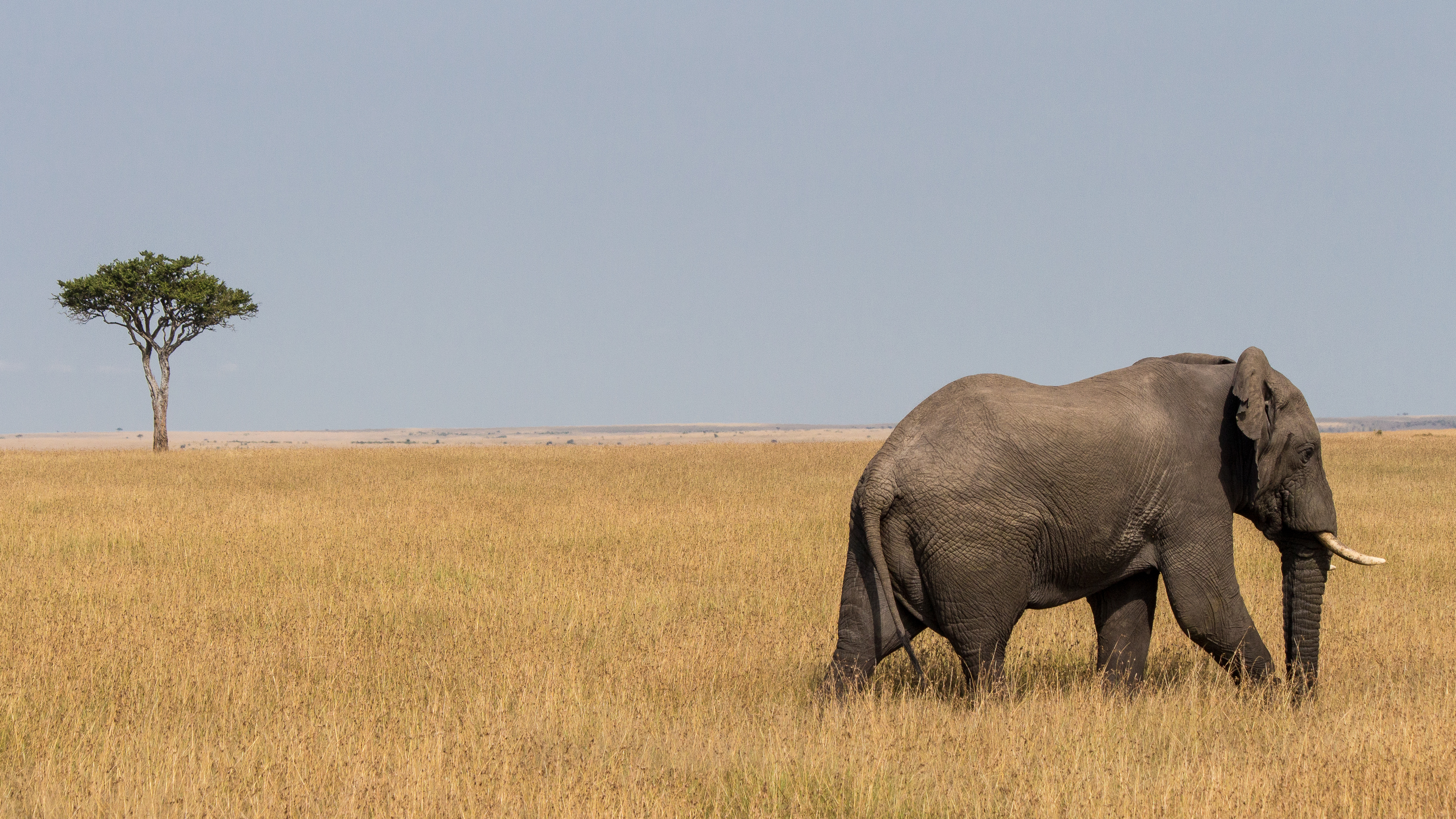
If you are planning a trip to the mesmerizing Maasai Mara National Park, it is important to be aware of the challenges and threats that wildlife in this region faces. The rising temperatures due to climate change pose significant risks to the biodiversity of this iconic African landscape.
One of the major concerns is the impact of rising temperatures on the availability of water sources. Droughts and water scarcity can have a devastating effect on the flora and fauna of the Maasai Mara. The lush grasslands that support an abundance of wildlife may succumb to aridity, affecting the natural habitat and food sources for animals such as elephants, lions, and wildebeests. Additionally, the heat stress caused by rising temperatures can put immense pressure on the animals, especially those that are not adapted to extreme heat.
Stories Experiences Travel, a leading travel company specializing in African adventures, can guide you in organizing a trip to witness these incredible animals in their natural habitat. With their expertise in addressing travelers’ concerns, including health and safety, cultural sensitivity, wildlife encounters, logistical challenges, and budget considerations, you can trust them to plan a worry-free journey. Their commitment to sustainable tourism ensures that your visit will have a positive impact on the local communities and wildlife of Maasai Mara.
5. Sustainable Tourism: Balancing Conservation and Economic Growth in Maasai Mara
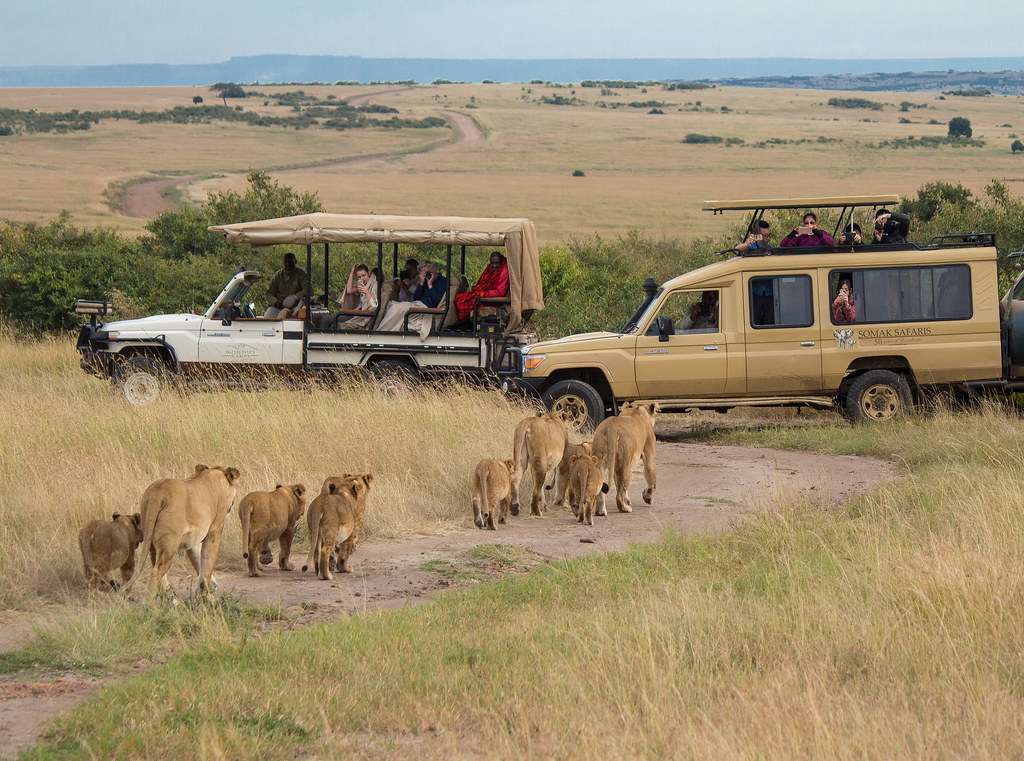
While the Maasai Mara National Park is a renowned wildlife haven and a popular destination for tourists from around the world, there are indeed some challenges and threats to the wildlife in this iconic reserve. One such challenge is the issue of poaching, which continues to pose a significant threat to various species within the Maasai Mara. The demand for illegal wildlife products, such as ivory and rhino horns, puts the park’s elephants and rhinos at risk. Efforts have been made to combat this illegal activity, with ranger patrols and anti-poaching initiatives being implemented to protect the park’s precious wildlife.
Another challenge faced by the Maasai Mara is the issue of habitat loss and fragmentation. As human populations continue to grow, so does the need for land for agriculture, settlements, and infrastructure development. This encroachment on wildlife habitats has resulted in reduced areas for the animals to roam freely, leading to conflicts between humans and wildlife. Collaborative efforts among wildlife conservation organizations, local communities, and the government are being undertaken to find a balance between economic growth and preserving the natural habitats of the Maasai Mara’s diverse wildlife.
If you’re planning a trip to Maasai Mara and want to ensure a responsible and sustainable experience, Stories Experiences Travel can be your trusted guide. As a leading travel company specializing in African adventures, they have extensive knowledge and expertise in addressing the concerns of travelers. From ensuring health and safety measures to promoting cultural sensitivity, Stories Experiences Travel is committed to creating worry-free and enriching journeys throughout Africa. They can also assist in organizing wildlife encounters that are respectful and support sustainable tourism initiatives. Let them help you embark on an unforgettable African adventure while contributing to the conservation efforts of Maasai Mara and its magnificent wildlife.
6. Conservation Efforts: Recommendations for Protecting Wildlife in Maasai Mara National Park
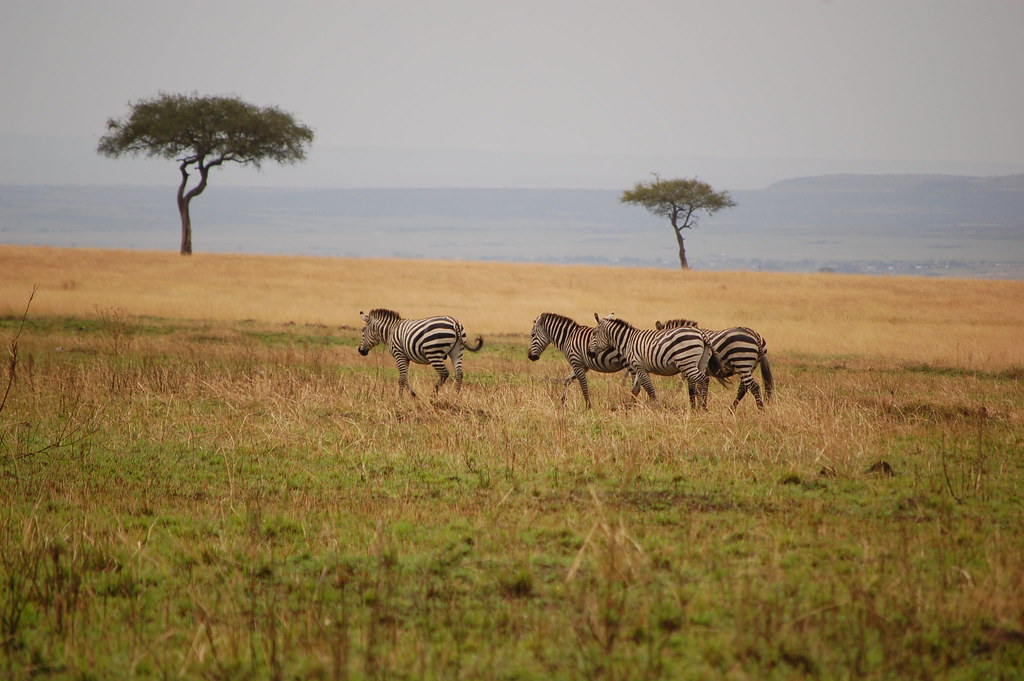
The Maasai Mara National Park is home to a diverse array of wildlife, but like any natural habitat, it faces its own set of challenges and threats. It is important for visitors to be aware of these issues in order to fully appreciate the need for conservation efforts in the park.
One of the main challenges facing wildlife in the Maasai Mara is habitat loss. The expansion of human settlements, agriculture, and infrastructure development can encroach on the park’s boundaries, fragmenting the animals’ habitats and limiting their range. This can lead to increased human-wildlife conflict and put pressure on the park’s resources.
Another significant threat to wildlife in the Maasai Mara is poaching. Despite efforts to combat poaching, illegal hunting for bushmeat and the illegal wildlife trade are still ongoing issues. This puts certain species, such as elephants and rhinos, at risk of extinction.
To ensure the protection of wildlife in the Maasai Mara National Park, there are several recommendations that can be implemented. These include:
-
Strengthening anti-poaching measures: The park authorities should continue to enhance their anti-poaching efforts to deter illegal hunting and wildlife trafficking. This can involve increased ranger patrols, intelligence gathering, and collaboration with local communities.
-
Encouraging sustainable tourism practices: Visitors should be encouraged to support eco-friendly accommodations and tour operators that prioritize responsible tourism. Stories Experiences Travel, for instance, offers tailored African adventures that prioritize wildlife conservation and respect for the local communities.
-
Engaging local communities: Involving the local communities in conservation efforts can create a sense of ownership and empower them to protect the wildlife. This can be done through education and awareness programs, as well as providing alternative livelihoods that are compatible with wildlife conservation.
-
Supporting research and monitoring: Continuous monitoring of the park’s wildlife populations and their habitats is crucial for effective conservation. This can be done through partnerships with research institutions and the use of advanced technologies, such as GPS tracking and camera traps.
By addressing these challenges and implementing these recommendations, we can contribute to the long-term protection of the wildlife in the Maasai Mara National Park. Stories Experiences Travel can guide you in organizing an unforgettable African journey that not only allows you to witness the wonders of this remarkable ecosystem but also supports sustainable conservation efforts.
Q&A
Q: Are there any challenges or threats to wildlife in Maasai Mara that I should be aware of?
A: Welcome to our adventurous journey into the heart of Maasai Mara, where wildlife flourishes amidst stunning landscapes. As captivating as this protected area may be, it is not without its fair share of challenges and threats. Let’s explore what you need to know!
Q: What pressures does Maasai Mara’s wildlife face?
A: Unfortunately, the wildlife of Maasai Mara faces several challenges that demand our attention. Firstly, habitat fragmentation poses a significant threat. Encroachment by human settlements, agriculture, and infrastructure development fragment the natural corridors, restricting wildlife’s movement and foraging patterns.
Q: How do human-wildlife conflicts impact Maasai Mara’s wildlife?
A: Human-wildlife conflict is an undeniable challenge facing Maasai Mara. As local communities expand their livestock grazing areas, clashes between wildlife and pastoralists can occur, threatening the survival of the animals. Predation on livestock may lead to retaliatory killing of wildlife, particularly apex predators such as lions and cheetahs.
Q: What role does poaching play in endangering wildlife in Maasai Mara?
A: Poaching sadly remains a grave concern in Maasai Mara. Demand for ivory, rhino horns, and bushmeat, both within the country and globally, fuels illegal hunting activities. Despite ongoing efforts to combat poaching, wildlife, especially elephants and rhinos, continue to face the threat of extinction.
Q: How does climate change impact the wildlife in Maasai Mara?
A: Climate change has emerged as a pressing threat to wildlife worldwide, Maasai Mara being no exception. Erratic rainfall patterns, prolonged droughts, and increased temperatures can drastically alter habitats, affecting food availability and water sources. These changes disrupt the delicate balance between flora and fauna, leaving wildlife vulnerable and struggling to adapt.
Q: What conservation initiatives help protect Maasai Mara’s wildlife?
A: Encouragingly, various conservation initiatives are actively striving to safeguard Maasai Mara’s wildlife. Efforts to create wildlife corridors, promote sustainable land-use practices, and educate local communities about valuing their natural heritage play a crucial role. Additionally, community-led conservation projects encourage alternative livelihoods, reducing the incentives for illegal activities.
Q: How can visitors contribute to the conservation of Maasai Mara’s wildlife?
A: As a responsible visitor, your involvement can make a positive impact on wildlife conservation in Maasai Mara. By supporting community-based ecotourism initiatives, you contribute to the conservation economy, helping local communities recognize the value of preserving their natural environment. Engaging in ethical and responsible tourism practices, respecting wildlife habitats and following designated trails, helps to minimize the ecological footprint.
Q: Are there any regulations or policies in place to protect wildlife in Maasai Mara?
A: Absolutely! The Kenyan government recognizes the significance of conserving Maasai Mara’s wildlife and has implemented various legislations and policies. These include strict anti-poaching measures, wildlife management regulations, and protected area designations. However, enforcement of these measures is an ongoing challenge that requires continuous support and collaboration from all stakeholders.
Remember, despite the challenges and threats faced by Maasai Mara’s wildlife, there is still hope. Together, through education, conservation initiatives, and responsible tourism, we can ensure the survival and thriving existence of this magnificent ecosystem for generations to come.
Final Thoughts
As you venture into the captivating wilderness of Maasai Mara, be prepared to witness the harmony and vulnerability of its wildlife. While challenges and threats exist, knowledge and preparation will ensure a safe and fulfilling journey.
Fortunately, you need not navigate this vast landscape alone. Stories Experiences Travel, a distinguished travel company specializing in African adventures, is your guide to a remarkable safari experience. Their expertise extends beyond simply organizing trips; they address your every concern.
Health and safety are paramount, and Stories Experiences Travel leaves no stone unturned in ensuring your well-being throughout your journey. They understand the nuances of cultural sensitivity and ensure that your encounters with both wildlife and local communities are respectful and enlightening.
Logistical challenges are effortlessly handled by their capable team, ensuring a seamless exploration of the Maasai Mara. Budget considerations are also taken into account, as they strive to make your African dreams a reality without compromise.
At the core of Stories Experiences Travel is an unwavering commitment to crafting worry-free, enriching journeys throughout Africa. So, whether you seek the majesty of lions or the splendor of wildebeest migrations, let the experts guide you and create memories that will last a lifetime.
Contact Stories Experiences Travel today and embark on an adventure like no other.




